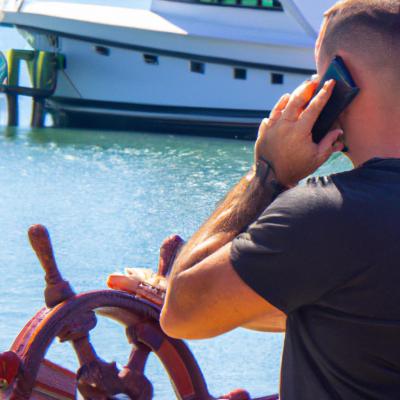






The information on this website is general in nature and does not take into account your objectives, financial situation, or needs. Consider seeking personal advice from a licensed adviser before acting on any information.
There are a variety of boat insurance policies available, each offering different levels of coverage. Before choosing a policy, it's important to consider factors such as the type of boat you have, how often you use it, and where you typically take it out on the water. Doing so can help you determine which policy is right for you.
Boat insurance can protect you financially in the event of an accident, theft, or damage to your boat. Without insurance, you would be responsible for paying for any repairs or legal fees out of pocket. Depending on the extent of the damage or injury, this could add up to thousands of dollars or even more.
There are two main types of boat insurance policies: agreed value coverage and actual cash value coverage. Agreed value coverage is based on the agreed-upon value of the boat at the time the policy is written. Actual cash value coverage, on the other hand, is based on the current market value of the boat at the time of loss.
Before choosing a boat insurance policy, consider the type of boat you have, how often you use it, and where you typically take it out on the water. You may also want to consider additional coverage options, such as liability insurance or coverage for personal items on board. Doing so can help you choose a policy that best fits your needs and budget.
Boat insurance policies are designed to protect boat owners in case of unexpected events that may result in financial loss. If any of the following events occur, it may be time to make a claim:
It's important to remember that insurance policies have specific guidelines, and not every situation is covered. Read your policy carefully and talk to your insurance agent to understand your coverage and when to make a claim.
When a loss occurs, notify your insurance provider immediately. This is crucial because most policies require prompt notification. Your insurance agent or company representative will provide you with instructions on how to proceed with the claim process.
Documenting the damage or loss is vital when making a claim. Take as many photos as possible, and write down other relevant information. This will serve as evidence to support your claim, making it easier for you to get compensated.
It is crucial to cooperate with the insurance company's representative handling your claim. Provide them with all the necessary information and answer their questions truthfully and to the best of your ability. This will ensure that the claims process goes smoothly and swiftly.
To ensure that you get the correct compensation amount, obtain repair estimates from authorized repair shops. Compare the estimates and choose the best option for your boat. The estimates should include the cost of labor, materials, and any additional expenses incurred during the repair.
Get the boat repaired by an authorized repair shop. The insurance company may have authorized repair shops in their network that they prefer to use. Using such shops may make the repair process easier and faster. Ensure that you keep all receipts and invoices relating to the repair work done.
Boat insurance claims can be complicated, and boat owners may face various challenges when filing a claim. Some of the most significant challenges include:
Insurance companies may try to undervalue a claim, which means they offer a settlement that is much less than the actual value of the damages. This can happen because the insurance company may not have understood the full extent of the damages, or they may have used inaccurate estimates when calculating the amount of the claim.
Insurance companies may also deny claims altogether, leaving boat owners with no way to recover the damages they've suffered. Denied claims can be a result of the owner not following the policy's terms and conditions, such as failing to report the accident on time or engaging in risky behavior that led to the damages.
Insurance adjusters are professionals who assess the damages and determine the amount of compensation that the owner is entitled to. However, there can be disputes between the owner and insurance adjuster when it comes to the amount of compensation offered. Disputes can arise when there is a disagreement on the extent of damages or the fair market value of the boat.
Insurance companies can sometimes take a long time to process and settle a claim, which can cause significant inconvenience and frustration for boat owners. A delay can be due to various reasons, such as incomplete paperwork or disputes between parties involved in the claim process.
When it comes to making a boat insurance claim, there are a few things you can do to help ensure a smooth process:
Boat insurance is a crucial element of owning a boat, and it's vital to understand the policy, know when to make a claim and follow the correct steps in the event of an incident. Your boat is a significant investment, and it's essential to protect it from unexpected events. Being prepared can be the difference between recovering entirely from an incident or experiencing significant financial losses.
Now that you know what steps to take when making an insurance claim for your boat, you will be better equipped to deal with any unfortunate situations that occur. Remember to always read through your policy thoroughly and consult with your insurance provider about any questions you may have. Additionally, take measures to prevent incidents from happening in the first place by prioritizing safety whenever you're out on the water.
Published: Tuesday, 13th Jun 2023
Author: Paige Estritori









